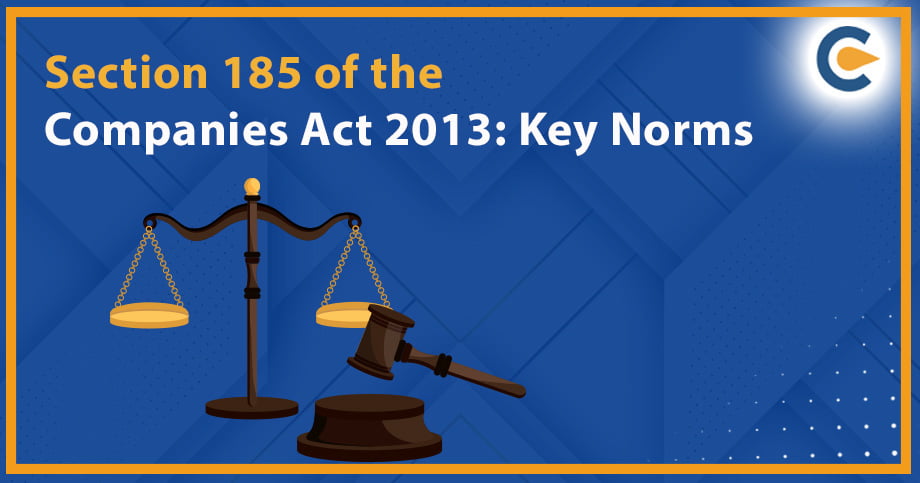Welcome, explorers of finance! Today, we’ll delve into the mysterious world of private limited corporations and the fascinating constraints that create their financing landscapes. Loans, the lifeblood of enterprises, frequently come with strings attached, and private limited firms move to their own beat. Join us as we uncover the mystery of the financial constraints that keep these entities on their toes.
A private limited company, defined by Section 2(68) of the Companies Act, 2013, is characterised by a minimum paid-up share capital, restrictions on share transfer, and a maximum of two hundred members (excluding One Person Company).
Restrictions on loans provided by private limited companies are essential for safeguarding investor interests, ensuring financial stability, and mitigating risks associated with lending. These restrictions on loans provided by private limited companies promote good corporate governance, enhance market confidence, prevent exploitative practices, and contribute to economic stability by establishing standards for responsible lending. For this regard, Section 185 Companies Act, 2013 regulates loans, guarantees, or securities provided by a company to its directors, their relatives, or entities where they have an interest. Special resolution approval in a general meeting is required, except when the loan serves the borrowing company’s principal business activities. The section aims to prevent misuse of company funds and enhance transparency in financial transactions involving directors.
Whether you’re a business owner, investor, or interested in corporate finance, the article aims to offer a comprehensive overview of the lending dynamics within the private limited company sector.
Loan Provisions for Private Limited Companies
Loan from Directors and their Relatives:
In the case of a private limited company, acceptance of loans from its directors or relatives of directors is permissible. However, the director or relative must provide a declaration affirming that the amount is not sourced from funds acquired through borrowing or accepting loans or deposits from others. The company is obligated to disclose the details of such transactions in the Board’s Report.
Loan from Shareholders:
Public companies face restrictions on accepting loans or deposits from their members if the total of proposed and existing borrowings exceeds 35% of the aggregate of paid-up share capital, free reserves, and securities premium.
However, private companies enjoy exemptions under the following circumstances:
1.A private limited company classified as a startup for the first 10 years from its incorporation.
2.A private limited company meeting specific conditions:
- Not an associate or subsidiary of any other company.
- Borrowings from banks, financial institutions, or any other corporate body are less than twice its paid-up share capital or fifty crore rupees, whichever is lower.
- There is no default in the repayment of existing borrowings when accepting deposits under Section 73 Companies Act.
Categories of Loans Under the Companies Act 2013 for Private Limited Companies
In the realm of Private Limited Companies, the Companies Act of 2013 delineates three fundamental categories of loans:
Permissible Loans:
This category encompasses loans that can be accepted without significant restrictions. Examples include loans from directors, loans from other companies, and loans from banking institutions.
Conditional Loans:
Loans falling under this category can be accepted, contingent upon compliance with Deposit Rules. Despite the intricacies and demanding nature of these rules, adherence is crucial. Compliance allows the company to accept loans from its members, subject to conditions specified in the Deposit Rules.
Prohibited Loans:
This category outlines loans that a Private Company cannot accept. Restrictions include loans from entities such as Partnership Firms and Hindu Undivided Families (HUF). These limitations are in place to uphold the financial integrity of transactions within the private corporate sector.
Legal Framework
Conditions for Loans/Deposits Acceptance as per Section 180(1)(c)
To facilitate the acceptance of loans/deposits from the aforementioned parties, a company must adhere to the conditions stipulated in Section 180(1)(c). According to this provision, if the sum of proposed and existing borrowings (excluding temporary borrowings) surpasses the total of paid-up capital, free reserves, and securities premium account, the company is obligated to pass a Special Resolution in a General Meeting.
However, it’s important to note that in the case of a private limited company, Section 180 does not apply. This exemption, as outlined in a notification dated June 5, 2015, is contingent upon ensuring the protection of shareholders’ interests. This provision acknowledges the distinctive nature of private companies, allowing flexibility in certain regulatory aspects while prioritizing safeguarding shareholder interests.
Section 185 Companies Act, 2013 – Prohibitions and Permissible Conditions Regarding Loans to Directors
Section 185 Companies Act, 2013 establishes strict prohibitions on companies providing loans, either directly or indirectly, to their directors, the holding company, relatives, or partners of the directors, and firms in which directors or relatives hold partnerships.
However, exceptions to this prohibition exist under specific conditions. A company may guarantee or provide security in connection with any loan made to any individual whose directors have an interest, or it may advance loans, including any loans represented by a book debt. Subject to certain restrictions, a corporation may lend money to any individual or organization that any of the directors may be interested in under Section 185(2) Companies Act, 2013.
The following requirements must be met to advance loans or offer security or a guarantee to the person in whom the director has an interest:
- In a general meeting, the firm must approve a particular resolution.
- The borrower company must use the loan amount for its primary business purposes.
- When a resolution to grant the loan is passed at a general meeting, the explanation statement should include the following information:
- Complete details of the loans, guarantees, or security offered and
- The purpose for which the borrower intends to use the loan, guarantee, or security
Exemptions from Section 185 Companies Act: Instances Where Restrictions Do Not Apply
Section 185 Companies Act, 2013 outlines restrictions on loans and advances to directors and related entities. However, there are specific scenarios where Section 185 Companies Act, 2013 may not be applicable:
- Loans to Managing or Whole-Time Directors:
If a loan is provided to a Managing Director or Whole-Time Director as part of their employment contract or conditions of service, Section 185 Companies Act does not apply. Such transactions are considered routine business dealings.
- Loans to Directors for Employee Welfare:
Section 185 Companies Act, 2013 is not applicable when a loan is granted to a director for the purpose of meeting expenses related to employee welfare, including medical, educational, or housing facilities for employees.
- Loans from Holding Company to Wholly Owned Subsidiary:
If a holding company extends a loan to its wholly-owned subsidiary or provides guarantees or securities for loans taken by its wholly-owned subsidiary, Section 185 Companies Act, 2013 does not apply.
- Loans or Guarantees with Shareholder Approval:
Section 185 Companies Act, 2013 is not applicable when a company offers a loan, guarantee, or security to its director or any other person in whom the director is interested, provided such transaction receives approval through a special resolution passed in a general meeting.
Non-compliance with Section 185 Companies Act 2013 incurs penalties:
- Penalty to the company: Fine ranging from Rs. 5, 00,000 to 25, 00,000.
- Penalty to every defaulting officer: Fine ranging from Rs. 5, 00,000 to 25, 00,000 or imprisonment for up to 6 months.
- Penalty to the director receiving the loan: Fine ranging from Rs. 5, 00,000 to 25, 00,000 or imprisonment for up to 6 months.
Additional Exemptions from Section 185 Companies Act, 2013 Restriction on Loans Provided by Private Limited Company
Notification No. GSR 464(E), dated June 5, 2015, grants a specific exemption to private companies from the provisions of Section 185. The notification explicitly states that section 185 will not be applicable to private companies meeting the following criteria:
- No other body corporation has invested any money in its share capital.
This implies that private companies are not permitted to have investments in their share capital from other corporate entities.
- Borrowings from banks, financial institutions, or any other corporate body are less than twice its paid-up share capital or fifty crore rupees, whichever is lower.
This requirement specifies that the aggregate borrowing of a private limited company, encompassing loans from banks, financial institutions, or other corporate entities, must not exceed twice its paid-up share capital or fifty crore rupees, whichever is lower.
- The company has no defaults in the repayment of such borrowings at the time of engaging in transactions covered by this section.
This stipulation ensures that a private company has not defaulted on the repayment of its borrowings at the time it engages in any transaction falling under Section 185 Companies Act.
Limits on Loans by Companies: Section 186 Companies Act, 2013 of the Companies Act
According to Section 186 Companies Act 2013, private and public companies are restricted from providing loans to any person or corporate body exceeding 60% of their Paid-up Capital, Free Reserves and Security premiums combined or 100% of Free Reserves and Security premiums. This restriction on loans provided by private limited companies is in place to ensure prudence in financial dealings and to prevent companies from overcommitting their resources through extensive loan provisions.
Other checklists to remember for Section 185 Companies Act
This checklist outlines compliance measures with Section 185 Companies Act, focusing on loan, guarantee, and security provisions, let’s have a better understanding.
- Restrictions on Directors, Relatives, and Partners: The Company is prohibited from advancing loans to its directors, their relatives, or partners. Guarantees or securities in connection with any loan cannot be provided to directors, their relatives, or partners.
- Prohibition on Loans to Related Firms: Loans cannot be extended to firms in which a director is a relative or partner. Providing guarantees or securities for loans to such firms is also restricted.
- Resolution Requirement for Interested Persons: Loans, guarantees, or securities for interested persons can be approved only through a resolution in a general meeting. The borrowing company must utilize the loan amount for its principal business activities.
- Verification of Interested Persons: Only individuals and entities specified in Section 185(2) are considered persons the director is interested in. Verification is crucial to ensure compliance with the listed categories.
- Loans to Managing or Whole-time Directors: Loans, guarantees, or securities can be provided to managing or whole-time directors if the company fulfils the conditions outlined in Section 185(3) of the Act.
- Business-as-Usual Exception: Companies engaged in their ordinary course of business can provide loans, guarantees, or securities for the due repayment of any loan.
- Holding Company and Subsidiary Transactions: A holding company is permitted to grant a loan to its subsidiary company, subject to compliance with the conditions specified in Section 185(3) of the Act.
Amendments to Section 186 of the Companies Act, 2013
Section 185Companies Act of 2013 was a prohibitory provision that was crucial from the beginning. Unlike Section 295 of the Companies Act of 1956, there was no method to request for the Central Government’s consent for the limitations not to apply. Furthermore, private companies found it completely intolerable that the aforementioned rule applied to both public and private entities. Then, on June 5, 2015, the MCA issued a notification exempting private companies from Section 185’s regulations. This was a huge relief for the private companies, but it is still subject to certain requirements. Thus, the entire section has been replaced to encourage simplicity in doing business.
The Companies Act 2013 was amended to remove any inconsistencies in the existing rules, strengthening corporate governance and facilitating easier commercial transactions in the nation. Therefore, the Companies (Amendment) Bill, 2017, was passed to clear up any confusion and offer clarity.
Importance of the primary business activity as stated in the amended clauses
The amended provisions ensure that the companies receive no siphoning of funds so that they do not take advantage of the relief. The borrower should use the amount received under the section for its principal business activities, not for further investment or loan grants. Furthermore, a subsidiary may only use loans granted to individuals, including subsidiaries, who come within the limited definition of Section 185 Companies Act for their primary business activity. The subsidiary may not use the funds for further investments or loan grants.
Stringent Penal Provisions
Company’s officers, as defined in Section 2 (59) as any director, manager, or key managerial personnel, or any person who gives instructions or directions to the Board of Directors or any one or more of the directors, has been included in the purview of Section185 and the penal provision for non-compliance with the provisions of Section 185Companies Act will apply on these individuals as well. As a result, the scope of penal provisions has been greatly expanded.
Status of the exemptions granted to private businesses
According to the June 5, 2015 exemption notification, only private companies that meet the specified requirements are free from section 185’s requirements. Therefore, under the amended Section 185 Companies Act, private organisations that do not meet the requirements will be prohibited from doing so. In other words, private companies that do not qualify to meet the requirements to fall under the exemption will be able to grant loans, security, and guarantees only under the restrictive purview.
Conclusion
This article has provided a detailed explanation of the regulations governing lending practices in private limited companies, i.e., the restriction on loans provided by private limited companies. It delves into the legal framework, highlighting key provisions governing loan amounts, purposes, and amendments brought in Section 185 of the Companies Act. The amendment was important as it substituted the whole section and added new provisions. The regulations governing loans in private and public companies provide a framework that is designed to ensure responsible financial practices. Private companies benefit from a more flexible approach, permitting loans from directors and their relatives, with the onus on transparent declarations. Still, if such companies do not fulfil the criteria mentioned under Section 185, they will be penalized. Moreover, even private companies are now provided with certain relaxations in providing loans to directors, etc. Still, if these companies do not meet the specified criteria, then the granting of loans will be permitted only with certain restrictions.
Frequently asked questions
Yes, a Private Limited Company can offer a loan to a managing/full-time director of the company if approved by a specific resolution in the meeting and if the PLC provides this facility to all of its employees.
The Companies (Amendment) Act, 2015 exempts a business that makes a loan, security, or guarantee to its wholly-owned subsidiary. The subsidiary may use the loans for its primary commercial activity.
A firm cannot lend more than 60% of its paid-up share capital, free reserves, and share premium to another person or body corporate, either directly or indirectly.
No, LLPs are not covered under the Companies Act of 2013. An LLP must adhere to the terms of the Limited Liability Partnership Act of 2008 rather than the Companies Act of 2013. As a result, when making loans to its partners, they are exempt from the rules of Section 185 of the Companies Act of 2013.
A firm may make loans to directors under specific conditions. According to Section 185 of the Companies Act of 2013, the corporation cannot make loans directly or indirectly, including credit card loans:
To any of its directors
To any partner or relative of the director
Provide security in respect of loans taken by the director or any such person
When the businesses Act of 1956 was in effect, public businesses could only grant loans, securities, and guarantees with the prior approval of the Central Government. Companies used to borrow money and then transfer it to their subsidiaries. However, in the event of a problem, the subsidiaries were left to deal with it on their own. As a result, Section 185 of the Companies Act of 2013, containing various loan-granting restrictions, was enacted.
Under the Deposit Rules of 1975, a private limited company can get an unsecured loan from its shareholders, directors, and relatives, and the transaction is exempt from Section 58A and other deposit laws.
Read Our Article: Loan to Directors: A Complete Checklist











